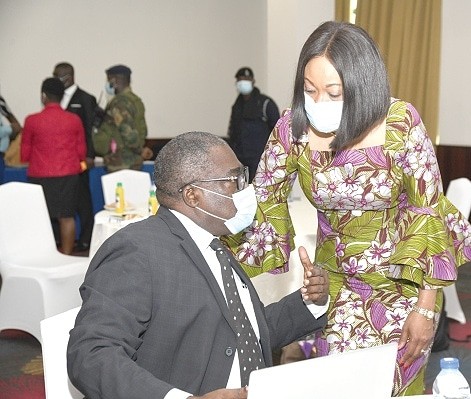|
Getting your Trinity Audio player ready...
|
The Chairperson of the Electoral Commission of Ghana, Jean Mensa, has put forward four proposals as reforms for the conduct of elections in Ghana.
While she describes the 2020 Presidential and Parliamentary Elections as a success, she believes the country can do better drawing from the experiences of previous elections.
Speaking at a forum for the assessment of the 2020 Elections on Tuesday, she has thus put forward the following proposals for consideration:
*We propose closing the polls at 3pm rather than 5pm. In 2019, we announced our decision to close the polls at 3pm rather than 5pm, in the 2020 Elections. Nonetheless, owing to the COVID-19 pandemic and the stringent, and necessarily time-consuming safety protocols we instituted at our polling stations, we were compelled to put this proposal on hold. Over the past months, however, this proposal has re-surfaced from various sections of the public, and indeed, our own experience from the 2020 Elections has revealed that it is a workable proposal, as by 1pm, most polling stations were empty, suggesting that this is a workable proposal. Therefore, this is a reform we intend to put forward.
*Again, we propose to do away with the system of periodic nationwide registration exercises, and institute an all-round system where citizens who turn 18, or persons who have not previously registered, may visit any district office with their Ghana Card or passport and register as voters. This will help us do away with nationwide registration exercises and go a long way to reducing cost of elections.
*We further propose a year-round exhibition system that will enable citizens check their registration details on their smart phones and other mobile devices. Citizens would not need to wait for an exhibition exercise to check their details. They will be able to do so, all year round.
*We propose to build further efficiency into our collation process by focusing on data entry only at the Constituency Collation Centre. The entry point for data capturing into the system will be at the Constituency Collation Centre. The data i.e. Constituency Collation Results will be made available to all stakeholders at the Regional and National levels.
Flowing from the data captured at the Constituency Collation Centre, the system will generate regional and national reports without further data entry at any of those levels. By adopting this system, the problem of minor inaccuracies with the collation process and unnecessary delays will be reduced significantly.
She hopes that the proposals will be considered to address some of the challenges encountered.














